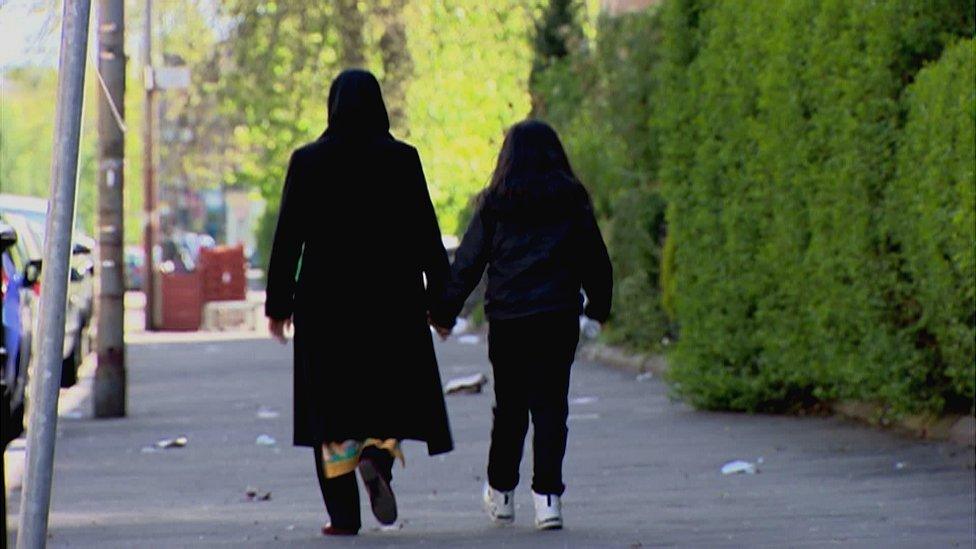Survey finds a third of black and ethnic minority Scots experience discrimination
- Published

The survey suggests 60% of those who felt they had been discriminated against did not report it
A third of black and minority ethnic (BME) Scots have experienced discrimination in the last five years, a study has suggested.
But the research, led by Strathclyde University, said 60% did not report it.
The Scottish government said it was giving £3m to organisations promoting racial and religious equality.
More than 500 people across Scotland were questioned in the survey, which is claimed to be the first focused exclusively on BME experiences.
About a fifth (21%) thought the problem was getting worse while 22% thought things were improving.
But Dr Nasar Meer of Strathclyde's School of Social Work and Social Policy, who led the research, said nearly 35% said discrimination was a 'widespread problem' in Scotland.
'Under-reporting'
He said: "There is clearly a perception of both low-level and more obvious experiences of racial discrimination in Scotland, but also of under-reporting, and much more research is needed to show how and in what ways this may be occurring.
"We certainly know from other fieldwork that racial discrimination occurs across the UK - for example, that BME applicants are less likely to be successful in applying for a job even discounting differences such as age and education.
"As this survey shows, we cannot assume this is not an issue in Scotland too."
Sixty per cent of respondents who had experienced discrimination in the last five years did not report it to any kind of authority.
This was despite 82% of the entire sample insisting they would encourage a friend or family member to make a formal complaint if they thought they had experienced discrimination.
The study, carried out by the polling company Survation, found variations in the experiences of different groups.
Nearly 45% of respondents with a black African Caribbean heritage respondents, agreed with the statement that they had 'experienced discrimination in Scotland in the last five years'.
The figure for respondents of Asian heritage was 29% and was 23% for those of mixed heritage
Discrimination was more likely (82%) to be as a result of ethnicity than perceived religion (42%).
But when they were asked if they felt incidents of racial discrimination were increasing or decreasing, 21% stated they have become 'more frequent', 22% 'less frequent', and 43% that they had 'stayed the same' over the last five years.
More than half (54%) agreed with the statement 'the Scottish government is doing enough to tackle discrimination in Scotland'.
Dr Meer said: "There is both good and bad news in this survey."
"BME groups in Scotland have firmly established themselves in Scottish society; feel a strong attachment to it, and like all groups hold diverse sets of views on what they think Scottish society should be like.
"Clearly, however, the issue of discrimination is one that cuts across BME experiences and tackling this should be of central importance to policy makers."
A Scottish government spokesperson said: "It is completely unacceptable that anyone should face discrimination as a result of their race or religion.
"While this research shows that we still have some way to go to eradicate racism and religious prejudice in our society, we are committed to tackling it.
"That is why we are providing over £3m to a range of organisations this year to promote race and religious equality and are currently working in partnership with stakeholders to develop a new race equality framework to tackle racism and promote equality, which will be in place in 2016."